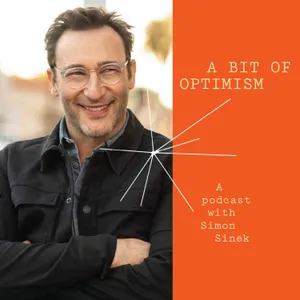Podcast Summary
Discovering Natural Supplements and Electric Vehicles with Great Taste and Performance: SYNBOTICA creates effective supplements from natural plant-based ingredients, while the Hyundai Ioniq 5 delivers impressive driving range in an electric vehicle.
SYNBOTICA offers all-natural supplements with great taste and effectiveness, made from premium plant-based ingredients, free from seed oils, fillers, and artificial additives. Meanwhile, the Hyundai Ioniq 5 electric vehicle provides impressive driving range, reducing concerns about electric vehicles. Gustav Koon's story highlights the connection between magic and psychology, as his passion for both led him to study psychology and eventually establish a science of magic. This unique background allowed him to bridge the gap between these two domains, leading to groundbreaking research in the field.
The Power of Cognitive Conflict in Magic: Magic creates cognitive conflict between our logical beliefs and experiential reality, using deception and misdirection to create illusions essential for entertainment.
Magic, as a form of entertainment, lies in the cognitive conflict it creates between our logical beliefs and our experiential reality. Magicians, like those in the past and present, have long understood the power of misdirecting attention to create illusions. This principle has been explored in various fields, including perception and developmental psychology, where magic tricks are used to understand human cognition. The speaker, who once aspired to be a professional magician, shifted his focus to academia after struggling to make a living as a performer in London during a time when busking was banned and magic was less popular. Magic, as performance magic, is defined as the use of tricks and deception to create the illusion of the impossible, resulting in a cognitive conflict that is essential for entertainment and adds excitement to our lives.
Magic's Impact on Well-being: Magic enhances well-being by teaching new skills, boosting self-esteem, providing positive feedback, and offering emotional benefits through both performing and experiencing magic.
Magic, beyond its entertaining value, holds significant potential in enhancing well-being. This is achieved through teaching people magic tricks, which boosts self-esteem and provides a sense of accomplishment. Magic also serves as an effective tool to teach new skills, offering positive feedback and a sense of control. Furthermore, experiencing magic as a spectator can also contribute to improved well-being, although more research is needed in this area. Magicians often report that they turned to magic as a way to cope with adversity, providing a unique skill and social interaction script. Overall, magic offers a unique blend of wonder, skill acquisition, and emotional benefits.
Magic enhances creativity by pushing boundaries and evoking emotional experiences: Magic's ability to create wonder and amazement through misdirection stimulates creative thinking by expanding our thinking and breaking down mental barriers
Experiencing the impossible through magical content or situations, such as watching magic tricks or being exposed to unexpected environments, can significantly enhance creativity. Research suggests that this is due to the fact that magic pushes the boundaries of what's possible and can evoke emotional experiences similar to childhood, which can help break down mental barriers and expand one's thinking. Misdirection, a key principle in magic, plays a crucial role in creating this sense of wonder and amazement. By drawing attention away from the actual method or solution, magicians create an environment where anything seems possible, thereby stimulating creative thinking.
Neural basis of magic reveals complex cognitive processes: Research on magic reveals the involvement of the dorsal lateral prefrontal cortex and ACC in perception, indicating the brain's complex role in understanding magic tricks
Misdirection in magic goes beyond just attentional manipulation and involves a complex interplay between perception, memory, and reasoning processes. When studying the neural basis of magic, researchers found that the dolula dorsal lateral prefrontal cortex and the area known as the ACC were involved in the perception of magic tricks. However, they were initially disappointed as they had hoped to find a more specific area. Now, we understand that everything has a neural basis, and this research shows that the brain's complex cognitive processes are at play when we're watching and trying to understand magic tricks.
Unique experiences of magic: Magic is not a one-size-fits-all experience as it relies on cognitive conflict and individual beliefs, resulting in varied responses among people.
Magic is not a unique experience for everyone, despite creating a sense of wonder. It relies on cognitive conflict between our perceptions and beliefs, and these factors can vary greatly among individuals. For instance, children and adults have different experiences with magic tricks due to their differing beliefs and understanding of the world. Even among adults, varying beliefs can lead to different experiences of magic. While magicians aim to create an illusion for their audience, individual responses will always differ. As we learn more about the human brain, it becomes clear that our experiences of the world are unique, and thus, our experiences of magic will also vary.
Blurring the line between magic and psychology: People are easily deceived by mentalism, highlighting the power of perception and misdirection in magic, even when the truth is revealed
Mentalism, a type of magic focused on mind illusion, blurs the line between real magic and trickery. Performers like Darren Brown use psychological principles and misdirection to make audiences believe they're reading minds, even when it's an elaborate illusion. People genuinely believe in the authenticity of mentalism, whether it's presented as magic or psychology. Research shows that this belief persists even when the truth is revealed. The line between real magic and trickery becomes increasingly blurred in mentalism, making it a fascinating and popular area of magic. Despite individual differences, many people are easily deceived by mentalism, highlighting the power of perception and misdirection in magic.
People's perception of magic influenced by beliefs and labels: Beliefs and labels have a significant impact on how people perceive and interpret magical experiences, and the use of manipulation techniques like the magician's force raises ethical concerns.
People's interpretation of magical experiences is heavily influenced by their prior beliefs, and the label given to the experience (magician or psychic) has little impact on their perception. The magician's force, a principle used by magicians to manipulate decision-making, is a powerful tool for studying concepts like free will and human agency. However, the potential misuse of these principles for nefarious purposes, such as in the case of fake news or political manipulation, raises ethical concerns. Despite the universal appeal of magic, there is no clear correlation between major personality traits and enjoyment for magic. Researchers are continuing to explore the psychological mechanisms underlying these principles to better understand their impact on decision-making and free will.
Applying magic principles to human-machine interaction: Magic principles like perception, illusion, and human connection can be used to enhance human-machine interaction and AI, making them more engaging and effective.
The principles of magic, which include perception, illusion, and human connection, can be applied to enhance human-machine interaction and artificial intelligence. The Australian government is funding a project to explore this possibility, and magicians may not become obsolete when AI reaches advanced levels due to the importance of human charisma and showmanship in magic performances. Magic and human-machine interaction share similarities, as both rely on creating illusions and manipulating perception. Human computer interaction designers face similar challenges in creating the illusion of interacting with real objects. Technological advances have been made possible by creating powerful illusions, and principles from magic can be implemented to enhance user experiences in gaming environments. Magic is becoming more seriously studied in academia as a tool to understand human cognition, and magicians have a wealth of knowledge about how the brain works that can be tapped into. However, magicians have been skeptical of using science to enhance their craft, as they have been performing magic tricks for centuries and have a head start on psychologists in this area.
Exploring the intersection of magic and science: Applying scientific principles to magic can lead to more effective illusions and a deeper understanding of the human mind.
The intersection of magic and science can lead to more powerful illusions and a better understanding of the human mind. Magicians, while skilled in their craft, may not fully understand why certain tricks work. Science and psychology offer valuable insights into the human mind, which can help magicians create more effective illusions. However, magic is currently an art form that lacks formal education structures, and much of its knowledge is based on introspection and personal experience. By applying more objective and systematic scientific principles, magicians can test the effectiveness of various principles and advance the field. A new research project is underway to explore this intersection, and it's expected to take some time before magicians fully embrace this approach. Despite the potential benefits, some magicians may not see how this research applies to them directly, as most current research focuses on understanding the human brain rather than enhancing magic. The Science of Magic Association is a great resource for those interested in this field, and they hold regular conferences bringing together magicians and psychologists to bridge the gap between science and magic.
A peaceful life is disrupted by terrorists: No matter where we go or who we are, we cannot always control the circumstances that come our way. Courage, resilience, and community are important.
Even those who have left their past behind cannot always escape the dangers of the world. In the film "The Marksman," retired hitman Finbar Murphy, played by Liam Neeson, lives a peaceful life in a remote Irish town. However, when terrorists arrive, Finbar is forced to confront his past and make a choice between protecting his identity and defending his friends and neighbors. This thought-provoking and action-packed film reminds us that no matter where we go or who we are, we cannot always control the circumstances that come our way. It's a powerful reminder of the importance of courage, resilience, and the bonds of community. So, whether you're a fan of Liam Neeson or just looking for a gripping and meaningful film, "The Marksman" is definitely worth checking out. Available now on digital from Samuel Goldwyn Films and Sony Pictures Home Entertainment. Rated R.






